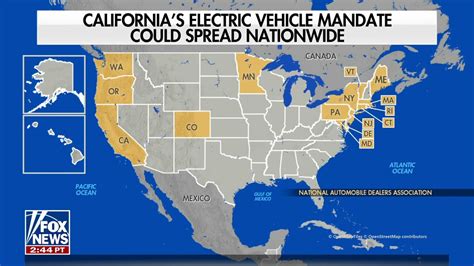The world is on the cusp of a revolution in the automotive industry, with electric vehicles (EVs) poised to become the norm. In recent years, governments around the globe have been implementing policies to encourage the adoption of EVs, with some even going so far as to announce plans to ban the sale of internal combustion engine vehicles altogether. But what exactly is an electric vehicle mandate, and how might it impact the future of transportation?
At its core, an electric vehicle mandate is a policy that requires automakers to produce a certain percentage of electric vehicles as part of their overall sales. This can be achieved through a variety of means, such as tax incentives, subsidies, or even outright mandates that dictate the number of EVs that must be sold. The goal of such policies is to reduce greenhouse gas emissions and other pollutants that contribute to climate change, while also promoting the development of more sustainable transportation options.
One of the most significant examples of an electric vehicle mandate can be found in California, where regulators have announced plans to ban the sale of new internal combustion engine vehicles by 2035. This move is part of a broader effort to reduce emissions and meet the state’s climate goals, with EVs playing a key role in the transition to a more sustainable transportation system. Other states, such as Massachusetts and Vermont, have also announced similar plans, with many more expected to follow suit in the coming years.
But electric vehicle mandates are not limited to the United States. In Europe, the European Union has implemented a comprehensive set of regulations aimed at reducing emissions from transportation, including a mandate that requires automakers to reduce their fleet-wide emissions by 37.5% by 2030. This has led to a surge in EV sales across the continent, with many countries investing heavily in charging infrastructure and other support systems.
Despite the many benefits of electric vehicle mandates, there are also potential drawbacks to consider. One of the most significant concerns is the impact on low-income communities, who may not have access to the same level of charging infrastructure or financial incentives as wealthier households. This could lead to a situation in which EVs become a luxury item, rather than a mainstream transportation option. Additionally, there are concerns about the sourcing of materials for EV batteries, with some arguing that the extraction of metals such as lithium and cobalt can have significant environmental and social impacts.
To address these concerns, policymakers will need to develop more nuanced and equitable approaches to promoting EV adoption. This could include investments in public charging infrastructure, as well as programs aimed at making EVs more affordable for low-income households. Additionally, there will need to be greater transparency and accountability in the sourcing of materials for EV batteries, with efforts to minimize the negative impacts of extraction and processing.
In terms of the technical specifics of electric vehicle mandates, there are several key elements to consider. One of the most important is the concept of “compliance credits,” which allow automakers to meet their emissions targets by generating credits through the sale of EVs. These credits can then be traded with other manufacturers, providing a financial incentive for companies to invest in EV technology. Another key element is the development of charging infrastructure, which will be essential for supporting the widespread adoption of EVs.
| Country | Electric Vehicle Mandate | Target Year |
|---|---|---|
| California, USA | Ban on internal combustion engine vehicles | 2035 |
| European Union | 37.5% reduction in fleet-wide emissions | 2030 |
| China | New energy vehicle mandate (10% of sales) | 2023 |

Looking to the future, it is clear that electric vehicle mandates will play a critical role in shaping the transportation sector. As policymakers continue to develop and implement these policies, it will be essential to balance the need for emissions reductions with the potential drawbacks of EV adoption. By investing in public charging infrastructure, promoting equitable access to EVs, and prioritizing sustainable sourcing practices, we can create a more just and sustainable transportation system for all.
What is an electric vehicle mandate?
+An electric vehicle mandate is a policy that requires automakers to produce a certain percentage of electric vehicles as part of their overall sales.
Which countries have implemented electric vehicle mandates?
+Several countries have implemented electric vehicle mandates, including the United States, European Union, and China.
What are the benefits of electric vehicle mandates?
+The benefits of electric vehicle mandates include reduced greenhouse gas emissions, improved air quality, and increased investment in sustainable transportation options.


